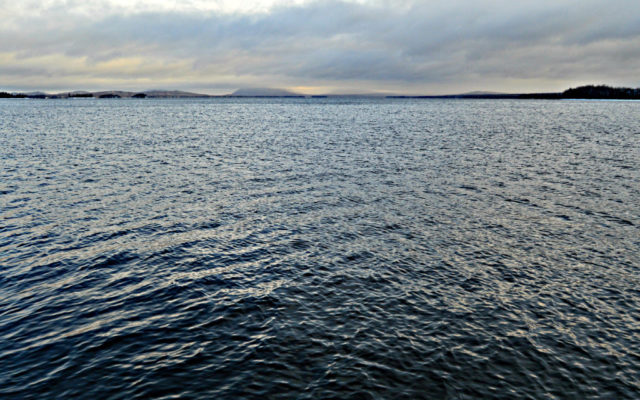
Tourism marketing efforts in transition regionally, statewide and nationwide
GREENVILLE – Business owners and other stakeholders from around the Moosehead Lake region gathered at the Trailside Restaurant on Dec. 10. Attendees at the Destination Moosehead Lake annual meeting got updates on the relatively new organization’s progress. Guests also heard from Steve Lyons, director of the Maine Office of Tourism, and keynote speaker Carolann Ouellette, director of the state’s new Office of Outdoor Recreation.
The journey from struggling chamber of commerce to growing Destination Marketing and Management Organization (DMO) has been challenging, but necessary, according to a handout given to attendees, which detailed the transition to the new organizational model.
In 2017, the Moosehead Lake Region Chamber of Commerce shifted from a traditional member-based chamber to the DMO. This model is more common in vacation destinations around the country, because the demand for broad-based regional marketing often conflicts with a chamber’s financial model of limiting such services to dues-paying members only.
As a DMO, the organization is able to market all area businesses, attractions and amenities; conduct broader public relations campaigns; implement inclusive social media marketing; staff the visitor center and provide direct referrals to all area businesses from that office; and produce more inclusive annual visitors guides. Rather than collecting member dues, Destination Moosehead operatives on a fee-for-service model with income from website and visitor guide ad sales, events and other services.
At the last annual meeting, according to Colleen Edmonson of the DMO’s finance committee, the organization was $26,000 in debt. Now, thanks to careful fiscal management, many volunteer hours and some generous donations, Destination Moosehead is debt free, she said.
Goals for 2020 include clear communication with all stakeholders, a growing calendar of events, strong marketing to get visitors to the region, and effective management to provide a great experience once they arrive, said Grace Bardsley, program manager.
Lyons, who has been with the Maine Office of Tourism for 20 years and has served as director since 2017, said his department doesn’t provide the significant support recently given to Destination Moosehead to “just anyone that asks.” He said it was the commitment shown by residents of the region to making Moosehead a true destination that garnered the DMO state funds for marketing and promotion projects this year. He gave a nod to Donna Moreland, a MOT employee specializing in destination development, for her work with Moosehead region stakeholders, and the progress made this past year.
“The Maine Office of Tourism isn’t going to do this [work] for you,” Lyons said. “It has to happen from the ground up. It is my privilege to help out where we can, and you don’t always see communities come together like this one has. There’s a long way to go, still, but you are definitely heading in the right direction.”
Maine a leader in linking outdoor recreation with economic development
In 2018, the Office of Outdoor Recreation was created as a branch of Maine’s Department of Economic and Community Development. Ouellette, who has a background in hospitality and outdoor recreation industries, was director of the MOT for several years, and most recently was executive director of Maine Huts and Trails, is both director and sole employee of the new department.
Maine is one of about a dozen states already doing leading-edge work around the links between outdoor recreation and economic development, Ouellette said. Utah led the way, opening its Office of Outdoor Recreation in 2013. More than 14 states have established similar offices in recent years. Thirteen of those states, including Maine, have signed the “Confluence Accords,” which call for a shared commitment to the common principles of conservation and stewardship; education and workforce training; economic development; and public health and wellness.
In 2016, congress passed the bipartisan Outdoor Recreation Jobs and Economic Impact Act, which further brings America’s outdoor recreation economy into the spotlight, measuring the industry’s contribution to the national GDP and helping policy makers reach informed and balanced decisions, she said.
Ouellette cited research indicating that outdoor recreation creates healthy communities and drives commerce in a variety of ways:
• Jobs in the outdoor sector attract active, healthy workers whose lifestyles inspire others;
• Towns and cities that invest in outdoor assets attract residents who value the work-life balance of access to the outdoors;
• Outdoor recreation infrastructure has proven an invaluable asset for economic development offices and chambers of commerce seeking to attract new employers.
The outdoor recreation economy includes not just providers, but “those that make the gear, make the goods and make the experience,” Ouellette said. Also included are land managers, access facilitators and educators. Consumers spend about $887 billion annually on outdoor-recreation related purchases. The industry accounts for 7.6 million jobs nationwide and generates $65.3 billion in federal tax revenue.
In Maine, Ouellette said, outdoor recreation creates 40,000 direct jobs (6.4 percent of employment in Maine), and accounts for 4.8 percent of the state’s economy, with $2.8 billion generated by private industry and $100 million in annual wages and salaries.
The Office of Outdoor Recreation is focused on leveraging Maine’s assets and outdoor recreation heritage to grow the economy and build the state’s outdoor recreation brand. Ouellette is tasked with creating and strengthening collaborations with partners from public and private sectors, including the MOT’s destination development team and other state agencies, the forest industry, colleges and many others.
Moving forward, her office aims to identify research gaps and develop the data needed to analyze impacts and support planning, as well as developing a communications plan for industry stakeholders, increasing awareness and support for the outdoor recreation industry’s contributions to the economy, and boost engagement with organizations focused on workforce and economic development. Ouellette said she also plans to organize an annual Outdoor Recreation Summit, and to continue to participate at a national level raising awareness of Maine as a leader in the industry.